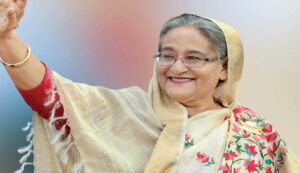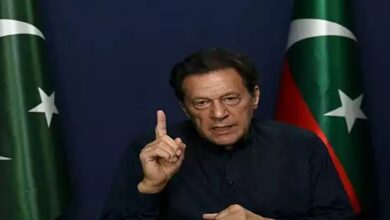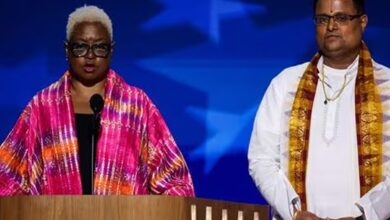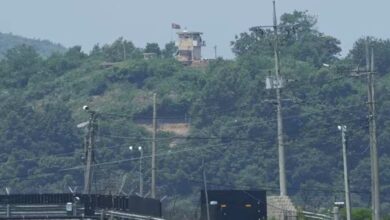Protesters demolished Prime Minister Sheikh Hasina’s family home and properties
Dhaka: Sheikh Hasina’s family house in Dhaka and several of her relatives’ belongings were destroyed by a crowd in Bangladesh. The crowd also attacked Hasina’s Awami League party leaders.
Social media was used to publicize and disseminate the assault, which was dubbed a bulldozer procession. Even nevertheless, the properties could not be protected by the government.

After 15 years of persecution, which included enforced disappearances, extrajudicial executions, and torture, Hasina resigned in August 2024.
She was ultimately pushed into exile in India as a result of student-led protests that many have dubbed the Monsoon Revolution. Over 800 people were killed when Hasina’s Awami League party administration, which had won back-to-back fraudulent elections, used disproportionate force to try to put an end to the demonstrations.
Hasina was about to speak to her supporters online when the damage occurred. The need to repatriate Hasina is increasing in India. However, in accordance with international norms, the Indian government must assess the dangers prior to extradition.
Under the leadership of Nobel Peace Prize winner Muhammad Yunus, the interim administration has started implementing reforms to fix many institutions, notably the legal system. In addition, it has promised legitimate elections and is moving toward accountability for corruption and breaches of human rights.
However, a growing number of disgruntled residents, like political organizations, students, or relatives of those injured during the Monsoon Revolution, are putting pressure on the Yunus government. Despite being the target of a disinformation campaign on claimed violations against religious and ethnic minorities, it has not been able to effectively reassure minority communities, especially Hindus, who are afraid of assaults. Seemingly to preserve its reputation, the military is deleting evidence and blocking access to locations of past illegal detentions.
A consensus resolution calling for technical assistance, further investigations, and monitoring and reporting by UN-backed human rights experts should be proposed by the Yunus government at the next United Nations Human Rights Council session in March. The resolution should also recognize the interim government’s good human rights actions and the oppression of the former administration.
A UN-backed system that may help ensure a democratic future should be supported by Bangladeshis who are eager to see justice served rather than giving in to a cycle of retaliation and bloodshed.





